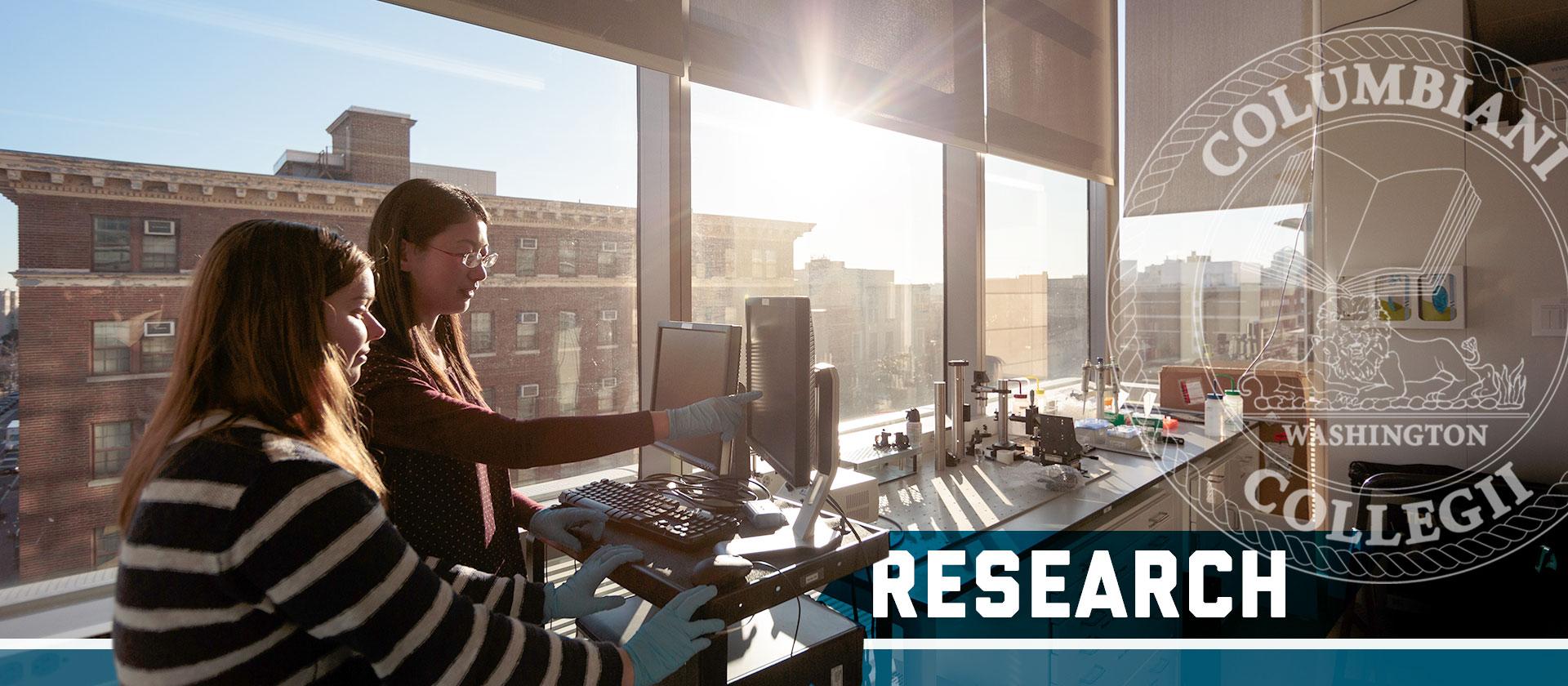Sacred Sisterhoods: A Celebration of Black Women's Friendships on TV and in Film


At Columbian College, scholars and scientists join student researchers to challenge assumptions and
Advance the forefronts of knowledge.
Discovery and innovation are a Columbian College tradition—from our century-long research partnership with the Smithsonian Institution to our state-of-the-art Science and Engineering Hall. As a member of the prestigious Association of American Universities (AAU), George Washington University is a distinguished leader in global research. Whether our scholars are observing celestial bodies light years from Earth or examining the roots of diseases like tuberculosis and malaria, Columbian College faculty and students are uncovering age-old mysteries and finding solutions to 21st-century challenges.
CCAS research centers
and institutes
annual college research expenditures
permanent full-time faculty members
average annual
faculty media hits
Columbian College faculty are prolific authors, awarding-winning scholars, innovators and artists. They are recipients of Guggenheims, Pulitzers and NEH fellowships, and are published in top media outlets and journals.
From labs and classrooms on campus to field sites around the globe, Columbian College students work side-by-side with world-renowned researchers and scholars on a journey of cultural and scientific discovery.
Columbian College is home to top research centers and institutes that explore an array of issues and ideas such as the origins of humankind, the inner workings of the brain and the growth of solar energy.
"Research has definitely broadened what I know about myself and what I want to do in the future. It's really changed my perspective on my career goals, and I'm very excited to keep going on that path now."
Sarah Schrup
BS '19

In a video conversation with Dean Wahlbeck, Professor of Political Science & International Affairs Kimberly Morgan discusses the policies and politics driving the immigration issue.

In a video conversation with CCAS Dean Wahlbeck, History's Katrin Schultheiss discusses the challenges and opportunities regarding the use of AI in the humanities.

Tools of Change: Research Team Uncovers 300,000 Years of Technology Traditions
New research led by Anthropology’s David Braun reveals how early humans crafted stone tools during environmental upheaval.

In a video conversation with Dean Wahlbeck, Professor of Political Science & International Affairs Kimberly Morgan discusses the policies and politics driving the immigration issue.

Math’s Kao Wins CAREER Award Honors
Mathematics Professor Lien-Yung (Nyima) Kao was recognized with NSF’s prestigious honor for his work combining ergodic theory and geometry.

From Stigma to Science and Support: Anthropology’s Grinker Authors Autism Narrative
As a researcher, educator and father, Anthropology’s Roy Richard Grinker shares his personal and professional journey through autism’s changing landscape.

DIG-ging Anthropology: Senior Bridges Labs, Leadership
Lucia Kustra studies primate cultures and leads the next generation of anthropologists as president of the DIG pre-professional fraternity.

Alumni Authors Write History’s Second Draft
In new books, alumni authors Alex Nyerges, BA ’79, MA ’82, and Lindsay Chervinsky, BA ’10, bring history to life.
